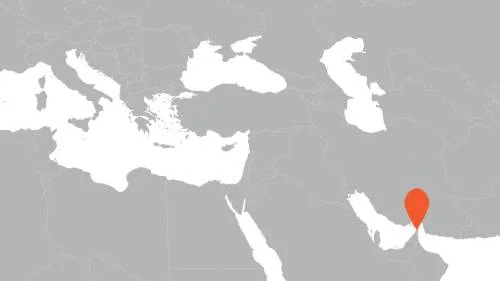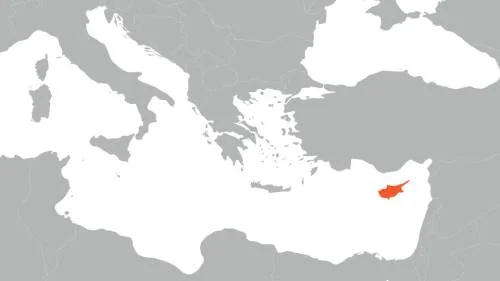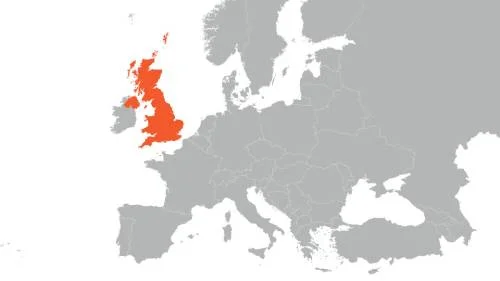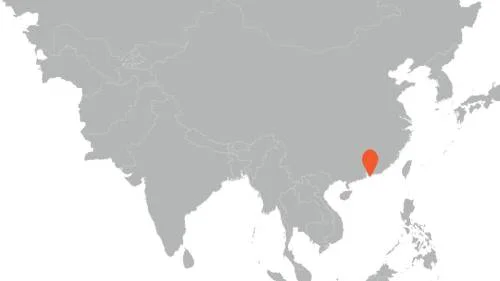Création de société à Malte

 Délai de création : 20 jours
Délai de création : 20 jours
 Sociétés pré-constituées : Oui
Sociétés pré-constituées : Oui
 Comptabilité : Obligatoire
Comptabilité : Obligatoire
 Secrétariat : Obligatoire
Secrétariat : Obligatoire
 Actionnariat anonyme : Oui
Actionnariat anonyme : Oui
 Directeur nominé : Oui
Directeur nominé : Oui
Impot: 4%
Présentation de Malte
La République de Malte est l’un des pays faisant partie de l’Union Européenne et se situe au sud de la Silice. Composé de huit îles (dont seulement quatre sont occupées), Malte est le pays le plus densément peuplé du monde avec 1 247 habitants au kilomètre carré. Anciennement sous le joug du Royaume-Uni qui appréciait sa position stratégique, Malte a déclaré son indépendance en 1964.
Malte : une place onshore
Malte bénéficie d’une bonne réputation en termes d’investissement onshore et possède l’avantage d’être dans l’Union Européenne et dans la zone euro. Les activités suivantes sont à privilégier à Malte :
- des licences de jeux en ligne
- des sociétés d’import/export(optimisation des marges)
- des entreprises de trading
La création d’une société à Malte est facilitée par la comptabilité simplifiée, des crédits d’impôt pour l’investissement et des procédures d’embauches améliorées.
Bon à savoir à Malte
A Malte, vous paierez 35% d’impôt puis obtiendrez 6 mois plus tard un remboursement de 31% versé à l’actionnaire de la société, comme expliqué dans notre montage de la société commerciale à Malte. Il faudra donc créer une holding à Malte et une supplémentaire offshore. Malte garde une bonne image mais la rigueur de la gestion ne vous permet pas de vous verser des salaires ou de faire des frais pendant l’année ; vous attendrez donc la fin d’année pour cela. Malte est également une bonne juridiction pour l’exploitation de la propriété intellectuelle.
Les différents types de sociétés à Malte
| Types de société | Traduction | Capital | Nombre d’associés |
|---|---|---|---|
| Limited Company (LTD) | Société privée à responsabilité limitée (SARL) | Pas de minimum, 1165€ au maximum | Responsabilité limitée aux apports |
| Independent business | Commerçant indépendant | Pas de capital minimum | 1 associé, responsabilité illimitée de l’associé |
| Partnership | Partenariat général | Pas de capital minimum | 2 associés minimum, 20 au maximum, responsabilité personnelle et indéfinie |
| Limited Partnership (LLP) | Partenariat limité | Pas de capital minimum | 2 associés minimum, 20 au maximum, responsabilité personnelle et indéfinie pour au moins un associé |
Les différents taux d’imposition
Si, en théorie, l’impôt des sociétés est de 35%, il existe à Malte une multitude d’avantages proposés aux investisseurs étrangers afin de créer plus de richesse et de consolider l’économie du pays. Ainsi, sont proposés aux investisseurs dans l’industrie :
- une taxe de 5%, au lieu des 35% habituels
- des crédits de taxe en fonction des investissements réalisés
- une baisse des impôts sur les bénéfices réinvestis
- des prêts avantageux et accessibles
- des permis de travail illimités pour les actionnaires détenant plus de 40% de la société
Tout cela sans compter la zone franche du pays, qui permet aux entreprises y étant basées de réduire leurs taxes. La taxe à la consommation (TVA) atteint de son côté les 18% avec des taux plus faibles pour certains secteurs (hôtellerie, électricité) voire inexistants pour les médicaments, l’alimentaire, la banque et les assurances. L’impôt sur le revenu individuel est quant à lui progressif :
| Revenus des personnes (EUR) | Taux d’imposition |
|---|---|
| 0 à 8 150 | 0% |
| 8 151 à 14 000 | 15% |
| 14 001 à 19 000 | 25% |
| 19 001 et + | 35% |
La France et Malte ont établi une convention de non double imposition en 1977, modifiée en 1994.
Liens :
Centre de Fiscalité de Malte
Inland Revenue Malta
L’essentiel de la comptabilité
A Malte, la comptabilité est réglementée par l’International Accounting Standards et s’étend du 1er au 31 décembre. Les comptes doivent être rédigés chaque année et comprendre un bilan, un compte de résultat et une annexe. La véracité des informations fournies dans ces comptes est imposée par la législation sur les sociétés de 1995.
Les comptes annuels doivent être confirmés par un expert extérieur à l’entreprise.
Lien :
International Accounting Standards
Institut Maltais des Comptables
Conseil de la comptabilité
La juridiction en détail
Depuis son indépendance, Malte a su tirer son épingle du jeu en présentant une croissance forte et surtout durable jusqu’à ralentir légèrement au début du XXIe siècle. Le pays a bien enduré la crise financière grâce à un système bancaire fiable. La croissance de Malte devrait être de 2,2% en 2013.
Le principal atout du pays du point de vue économique est son attrait touristique, auquel succombent chaque année 1 million de personnes. Ce pan de l’économie national représente tout de même 30 % du PIB. La production de biens électroniques et pharmaceutiques est également un élément majeur avec 20% du PIB et 75% des exportations du pays. Parallèlement, Malte importe beaucoup de matières premières et d’énergie pour compenser son manque total de ressources naturelles.
Le pays commerce principalement avec les Etats-Unis, l’Union Européenne et Singapour et profite de sa situation géographique pour s’imposer comme un intermédiaire obligatoire pour le commerce entre le nord et le sud de la Méditerranée. Sa balance commerciale a longtemps été déficitaire mais semble, depuis quelques années, tendre à nouveau vers l’équilibre.
Les avantages en termes d’investissement :
- Malte fait partie de l’Union Européenne
- il s’agit d’un bon lieu d’échanges (géographie avantageuse)
- système politique et économique stable
- main d’œuvre bon marché
- des avantages fiscaux ont été mis en place pour les investisseurs
- infrastructures bien entretenues et modernes
- les investissements étrangers sont de plus en plus importants
Les inconvénients :
- le marché intérieur est étroit
- le niveau de vie des habitants est assez faible
- économie dépendante du tourisme
L’accès et le fonctionnement du marché
Malte est membre de l’Organisation Mondiale du Commerce et de l’Union Européenne, signataire du Protocole de Kyoto, de la Convention de Washington, de la Convention de Bâle, du Protocole de Montréal et de l’Accord International sur le café de 2001.
Certaines importations sont soumises à des licences européennes : denrées alimentaires, services commerciaux, aliments devant passer une inspection vétérinaire et les produis dangereux pour la couche d’ozone. Le commerce avec d’autres pays membres de l’Union Européenne n’est pas soumis à une taxation douanière. Les échanges avec les autres pays sont donc imposés à un taux défini sur la valeur CIF selon le Tarif Douanier Commun.
Les produits industriels sont ainsi taxés à environ 4%, un montant qui s’élève pour le textile et l’agro-alimentaire (17,3%). Le code TARIC recense toutes les taxations douanières. L’importation de produits à Malte nécessite la possession d’un Document Administratif Unique. Une Déclaration Sommaire d’Entrée (Entry Summary Declaration) est également obligatoire dans le cadre du système de protection des importations mondial (Import Control System).
La distribution à Malte est caractérisée par une forte concurrence malgré la petitesse du pays, liée à de nombreuses entreprises souvent familiales. Les magasins sont souvent modestes, et la grande distribution et les supermarchés sont presque inexistants. La mer et les routes sont les voies de transport les plus utilisées, tout dépendant de l’endroit où doivent être acheminées les marchandises.
Quant à la production de biens et de services, le secteur pharmaceutique est l’un des plus dynamiques, avec l’électronique, les centres d’appel, la logistique et les services financiers.
La législation du travail
La durée légale du travail est fixée à 40 heures par semaine avec un salaire minimum de 585 EUR mensuels. Les contrats de travail (à durée déterminée, indéterminée, à temps plein ou partiel) répondent aux normes établies par les Conditions of Employment Act. Le départ à la retraite est à 60 ans chez les femmes et 61 ans chez les hommes.
L’employeur et l’employé doivent chacun payer des cotisations sociales à hauteur de 10%. On dénombre un syndicat très influent, l’Union Générale des Travailleurs de Malte.
La propriété intellectuelle
| Type de droits | Texte de loi | Validité de la protection | Accords signés |
|---|---|---|---|
| Brevets | Patents Act 2002 | 20 ans | |
| Marques | Trademarks Act 2001 | 10 ans renouvelables | - Traité sur le droit des marques - Arrangement de Nice sur la classification des biens et services - Arrangement de Madrid sur l’enregistrement des marques |
| Design | Dessins et Modèles industriels | 5 ans renouvelables de 25 ans maximum | |
| Droits de reproduction | Législation sur les droits d’auteur 2000 | 70 ans après la mort de l’auteur | - Traité de l’OMPI sur le droit d’auteur |
| Modèles industriels | Dessins et Modèles industriels | 20 ans |
Liens :
Association des Détaillants Généraux et des Commençants de Malte
Taux douaniers de Malte
Douanes maltaises
Autorité des transports de Malte
Chambre du Commerce de Malte
Conditions of Employment Act
Les données politiques
Le Président (actuellement George Abela) est élu par le Parlement pour une durée de 5 ans, et c’est lui qui nomme le Premier Ministre (aujourd’hui Lawrence Gonzi). Ce dernier est le véritable représentant du pouvoir exécutif, il dirige le gouvernement. A l’opposé, le pouvoir législatif est composé de la Chambre des Représentants (au nombre de 65) élus au suffrage universel pour 5 ans.
Le paysage politique est composé de deux partis : le Parti Nation, chrétien démocrate, et le Parti Travailliste de Malte, social-démocrate.










